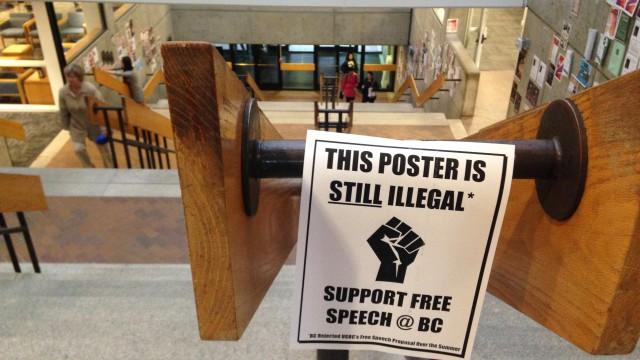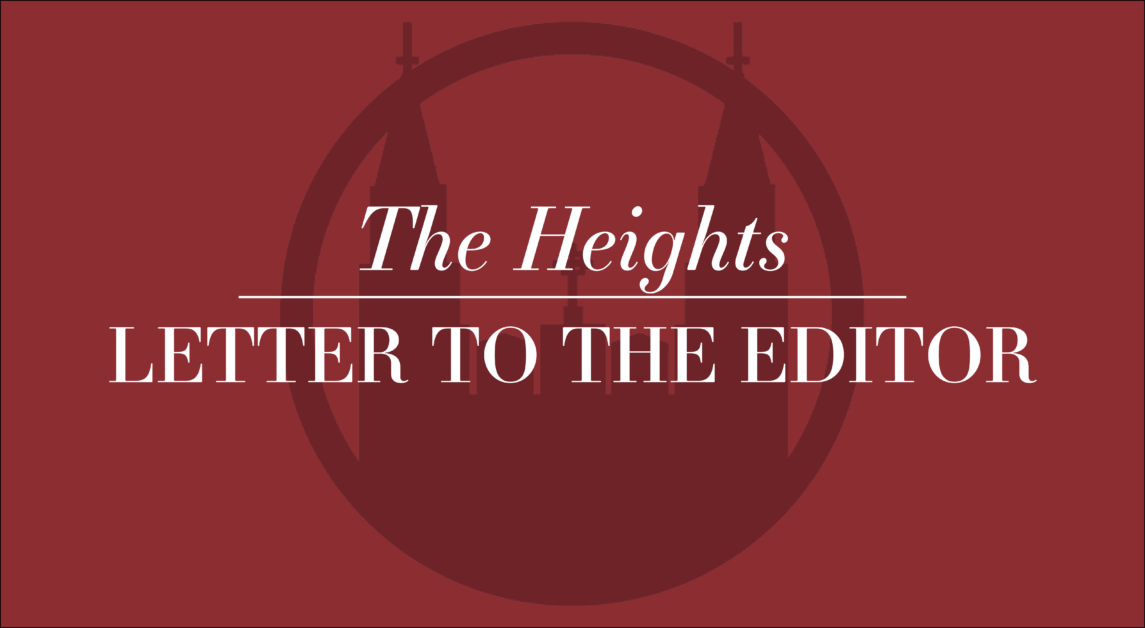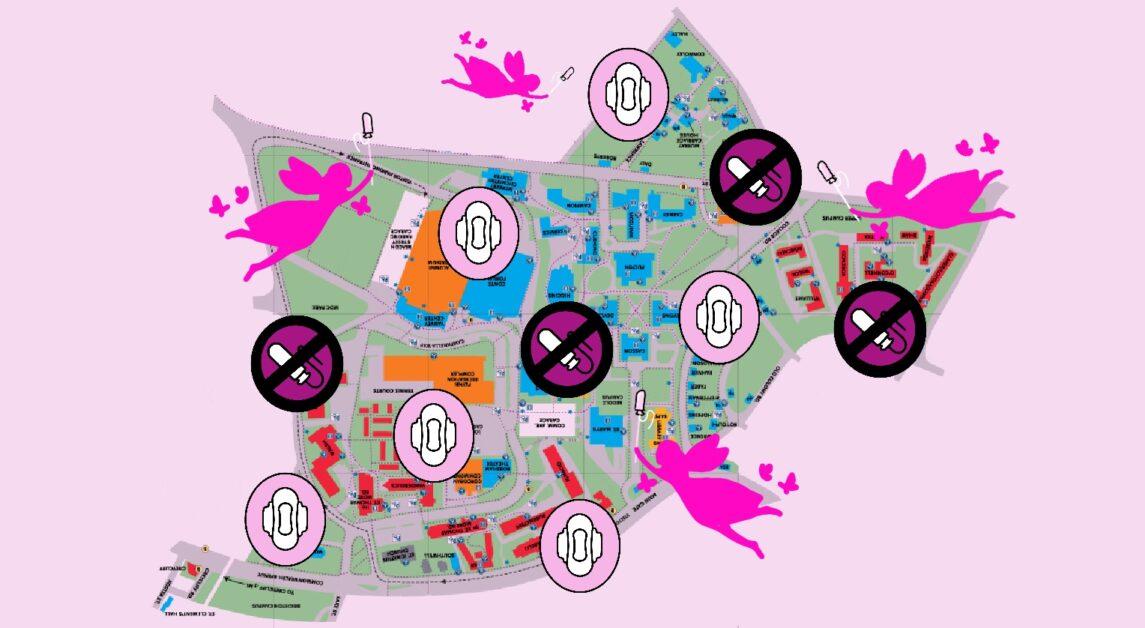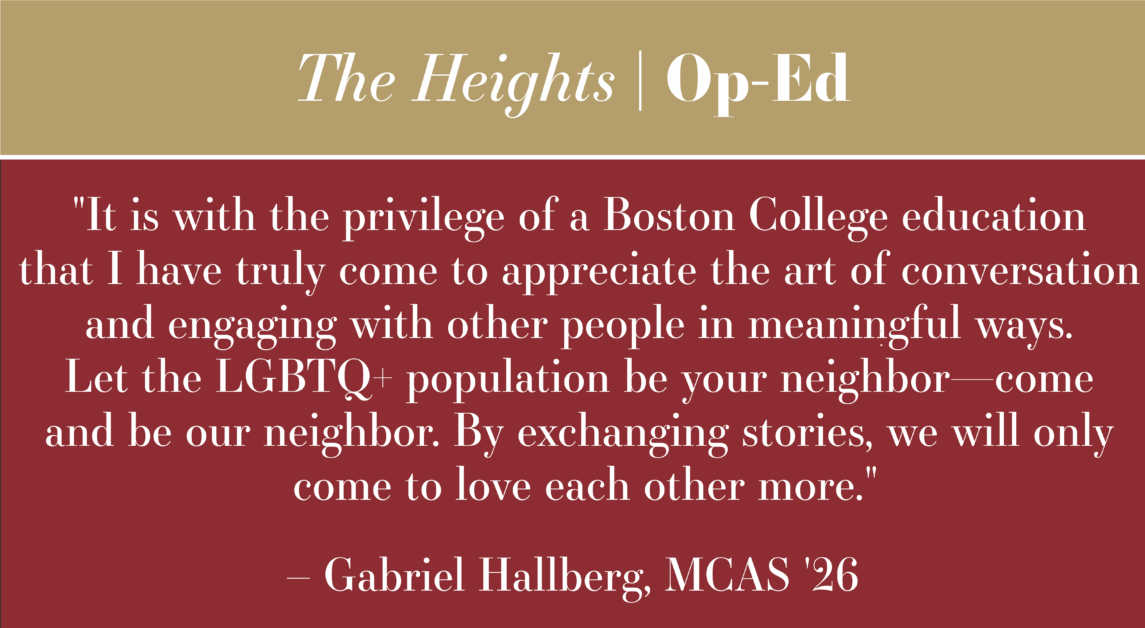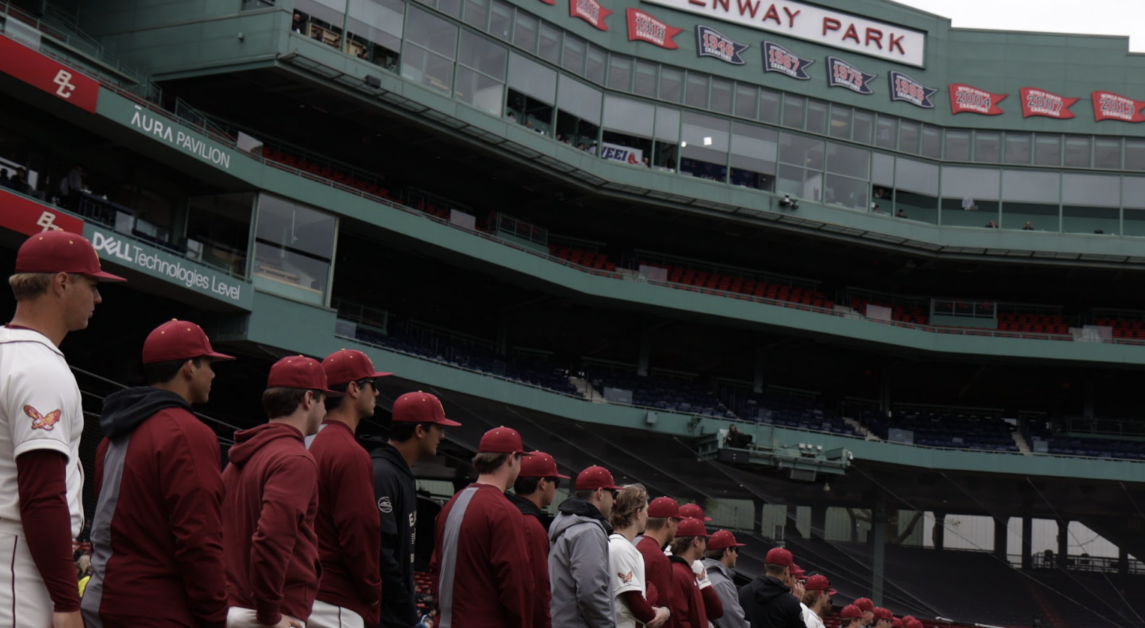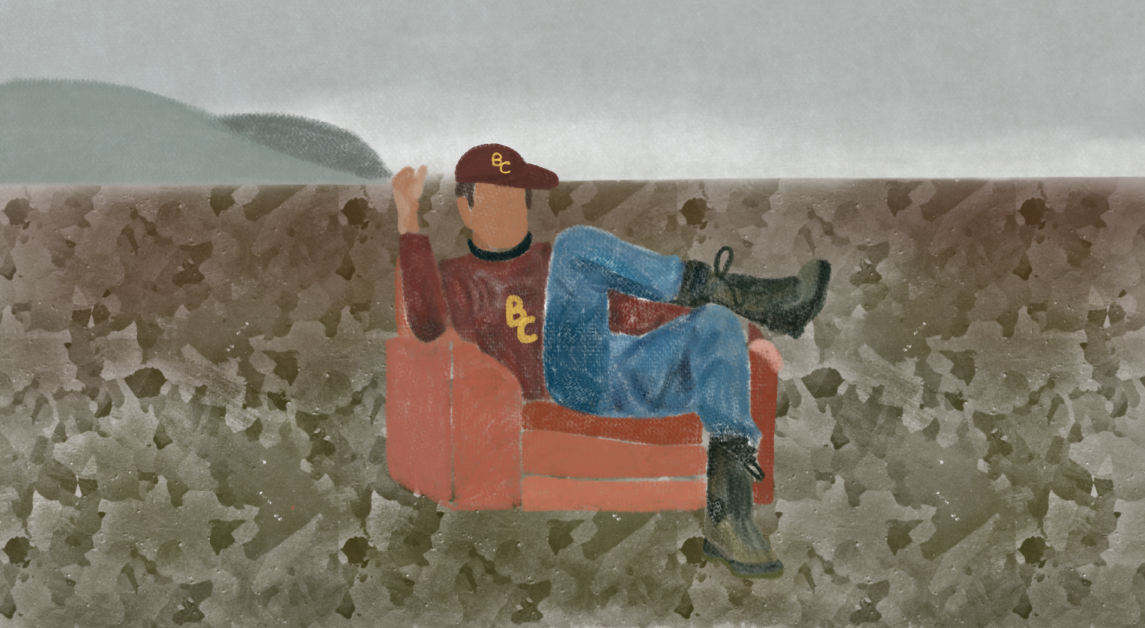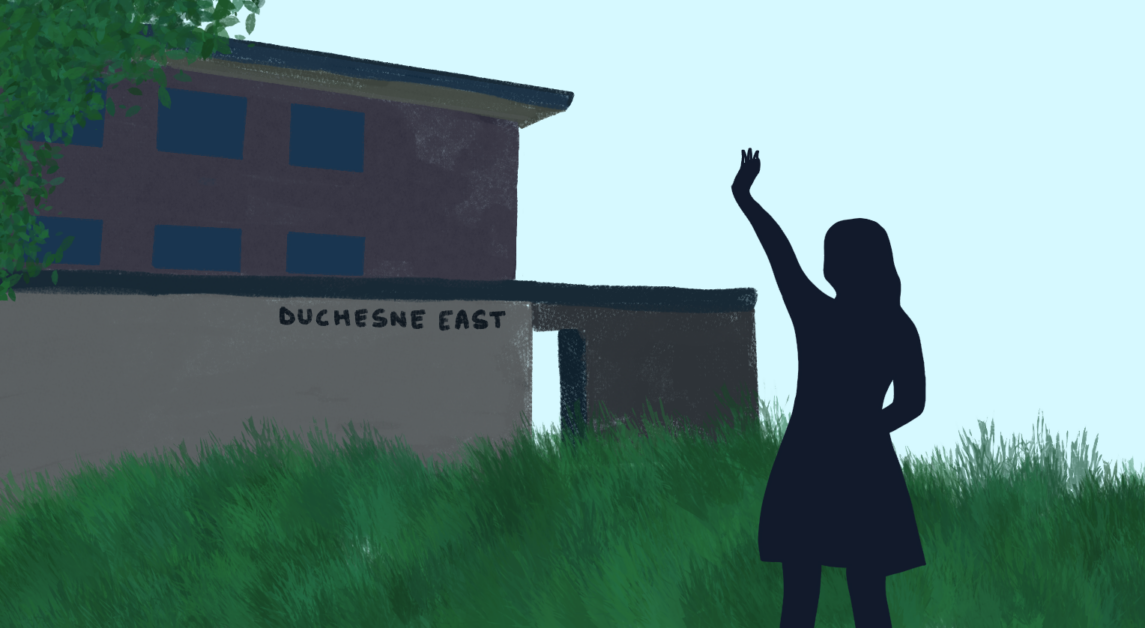Last week, a group of veiled, anonymous students roamed the halls of campus, posting unapproved fliers that read “This poster is still illegal.” While these students were not members of the Undergraduate Government of Boston College (UGBC), at least as far as we are aware, they were directly commenting on an issue that still affects every student on this campus and one that UGBC has prioritized in addressing: the lack of free expression rights that BC students have outside of the classroom.
In policy terms, this means that individual students who are not a part of a recognized student organization (SO) are still not even able to apply to post a flier, book a room, hang a banner, bring in a speaker to discuss a certain issue, or host a demonstration on campus. These rights are given only to SO’s, which are only allowed to exist if their mission “promotes that of Boston College’s.”
Earlier this summer, UGBC was notified that our recommendations to BC’s free expression policies, which were supported nearly unanimously by the Student Assembly, were not implemented in the new student guide. This means that the issue of free expression, which in recent years has most acutely affected students who advocate for issues such as climate protection, LGBTQ equality, and racial equality, continues to be a problem. Last week’s flier protest and an accompanying editorial in this paper prove that this issue remains salient on our campus. While we are still advocating for more substantive, long-term policy changes, we in UGBC recognize the need for immediate action and would like to announce new services to help students navigate existing policies. Here are three of them:
The Ten-Student Service: As individual students are not allowed to apply for a demonstration, UGBC will make itself available as a resource. If ten individual students sign our demonstration form, available here, we will meet with them within 48 hours to discuss applying for a demonstration for them.
Free Expression Reporting Form: By creating a means in which BC community members can report incidents in which they feel their ability to express themselves has been curtailed, UGBC is doing two things. First, we are responding to the reality that students currently have no outlet to appeal decisions related to free expression. By reporting their incident in this form, UGBC can support them in advocating for a reversal of the decision in various ways. Second, UGBC will now be able to document incidents and concerns as a means to track patterns, and to eventually create policy changes that address the restrictions on free expression in our community.
The Incubator Phase: As the only way to gain expression rights is by becoming a SO, we need to make sure that as many SO’s can be recognized as possible. UGBC is currently in the process of advocating for the “incubator phase,” which would give SO’s who would otherwise have been rejected for various reasons, including administrative and financial reasons, the opportunity to have expression rights. While groups in this phase will not receive funding from the university, they will have the chance to express themselves. We are hopeful this policy can be ready for the second semester.
From the beginning, our administration has promised to make free expression a priority—we stand even more committed to that promise six months after inauguration. We also understand that these short-gap services do not rise to the level of a sensible, comprehensive free expression policy. Nevertheless, as we continue to meet with administrators weekly to find common ground, we want to do all that we can to help students navigate existing policies. Moving forward, we invite all students to stop by our open general meetings on Sundays at 6:30PM in Fulton 511 and our office hours in Carney 106. And of course, we encourage any member of the BC community to reach out to us at [email protected] or [email protected].
The 2015-2016 Executive Council of the
Undergraduate Government of Boston College
Thomas Napoli, President
Olivia Hussey, Executive Vice President
Afua Laast, VP of Diversity and Inclusion
Sloan Renfro, VP of Student Initiatives
Russell Simons, VP of Student Organizations
Nick Crain, VP of Financial Affairs
Cindy Chen, VP of Communications
Jono Keedy, Co-Director of ULA
Karryn Christiansen, Co-Director of ULA
Featured Image by Carolyn Freeman / Heights Editor

